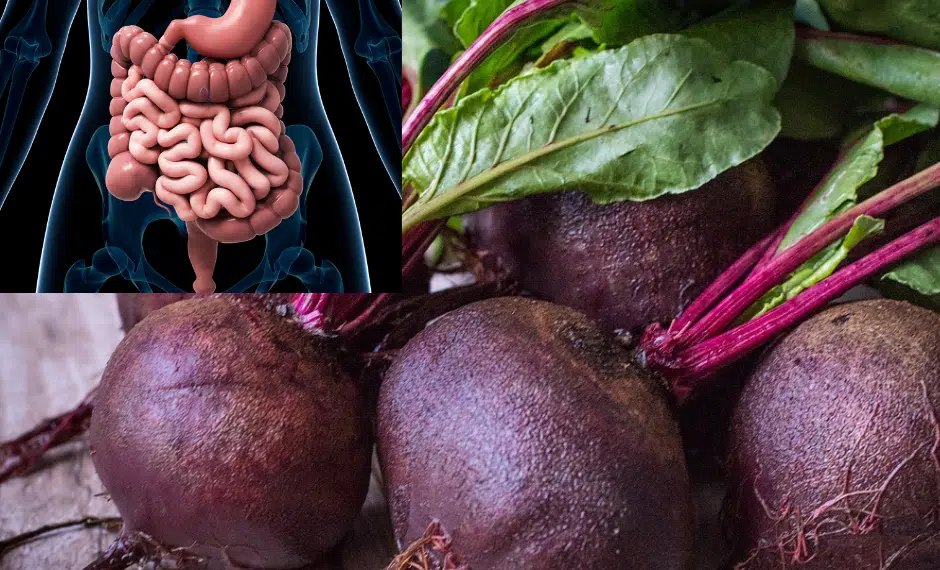Beetroot, with its vibrant color and sweet, earthy flavor, is more than just a versatile ingredient for salads and smoothies.
This humble root vegetable is packed with an impressive array of nutrients that offer a multitude of health benefits. From boosting your energy levels to supporting heart health, beetroot is truly a superfood that deserves a regular spot in your diet.
In this article, we’ll explore 11 compelling reasons why you should start consuming beetroot every day.
1. Boosts Energy and Stamina
Beetroot is an excellent source of natural nitrates, which help improve the efficiency of your body’s energy production.
Consuming beetroot increases oxygen flow to your muscles, enhancing your stamina and endurance during physical activities. This is why athletes often consume beetroot juice before workouts to boost performance.
Tip: Drink a glass of beetroot juice 30 minutes before your workout for an energy boost and improved performance.
2. Lowers Blood Pressure
The natural nitrates found in beetroot convert to nitric oxide in the body, which helps relax and widen blood vessels, thereby lowering blood pressure.
Regular consumption of beetroot can help maintain healthy blood pressure levels, reducing the risk of hypertension and heart disease.
Tip: Include beetroot in your daily diet to support cardiovascular health and keep your blood pressure in check.
3. Supports Heart Health
Beetroot contains betaine, a compound that helps lower levels of homocysteine, an amino acid that can damage blood vessels and increase the risk of heart disease.
The folate in beetroot also supports heart health by helping to regulate homocysteine levels in the blood.
Tip: Add roasted beetroot to your salads or smoothies for a heart-healthy boost.
4. Improves Digestion
Beetroot is high in dietary fiber, which promotes healthy digestion by adding bulk to the stool and preventing constipation.
The fiber content also supports the growth of beneficial gut bacteria, which play a crucial role in overall digestive health.
Tip: Enjoy beetroot as part of your daily diet to maintain a healthy digestive system and prevent digestive issues.
5. Detoxifies the Liver
Beetroot is rich in antioxidants, such as betalains, which support liver function and promote detoxification. These compounds help remove toxins and reduce oxidative stress in the liver, making beetroot an excellent food for liver health.
Tip: Make a liver-cleansing juice by blending beetroot with carrot, lemon, and a piece of ginger.
6. Enhances Brain Function
The nitrates in beetroot help increase blood flow to the brain, which can enhance cognitive function and reduce the risk of age-related cognitive decline.
Regular consumption of beetroot may help improve memory, concentration, and overall mental performance.
Tip: Start your day with a beetroot smoothie to keep your brain sharp and focused throughout the day.
7. Supports Weight Loss
Beetroot is low in calories and high in fiber, making it a great addition to a weight-loss diet. The fiber content helps you feel fuller for longer, reducing overall calorie intake and supporting healthy weight management.
Tip: Incorporate beetroot into salads, soups, or as a snack to add volume to your meals without the extra calories.
8. Improves Skin Health
The high levels of antioxidants and anti-inflammatory properties of beetroot can help promote healthy, glowing skin.
Regular consumption of beetroot can help reduce acne, blemishes, and signs of aging, leaving your skin looking rejuvenated.
Tip: Drink beetroot juice or apply a beetroot face mask to achieve a natural, radiant complexion.
9. Boosts Immune System
Beetroot is packed with essential vitamins and minerals like vitamin C, iron, and zinc, which are vital for a healthy immune system.
These nutrients help strengthen your body’s defense mechanisms, making you less susceptible to common illnesses and infections.
Tip: Add grated beetroot to your salads or make beetroot soup to support your immune health.
10. Supports Eye Health
Beetroot is a good source of beta-carotene, a precursor to vitamin A, which is crucial for maintaining healthy vision and preventing eye disorders.
The antioxidants in beetroot also help protect the eyes from oxidative stress and damage.
Tip: Pair beetroot with other vitamin A-rich foods, such as carrots and sweet potatoes, for a meal that supports eye health.
11. Promotes Healthy Blood Sugar Levels
Beetroot has a low glycemic index, meaning it does not cause a rapid spike in blood sugar levels. Its natural sweetness makes it a healthy option for those with diabetes or those looking to manage their blood sugar levels.
Tip: Use beetroot as a natural sweetener in smoothies, desserts, and baked goods to satisfy your sweet tooth without compromising your blood sugar.
How to Include Beetroot in Your Daily Diet
Now that you know the incredible benefits of beetroot, here are some simple ways to incorporate it into your daily meals:
- Beetroot Juice: Blend fresh beetroot with apples, carrots, and a squeeze of lemon for a refreshing and nutritious juice.
- Beetroot Smoothie: Add raw or cooked beetroot to your morning smoothie along with spinach, banana, and almond milk.
- Roasted Beetroot: Roast beetroot with olive oil, salt, and pepper for a delicious side dish or salad topping.
- Beetroot Soup: Make a warming beetroot soup by combining beets with onions, garlic, and vegetable broth.
- Beetroot Salad: Grate raw beetroot and toss it with leafy greens, nuts, and your favorite dressing.
- Beetroot Hummus: Blend cooked beetroot with chickpeas, tahini, garlic, and lemon juice for a vibrant and healthy hummus.
Beetroot is a true superfood that offers a wide range of health benefits when consumed regularly.

